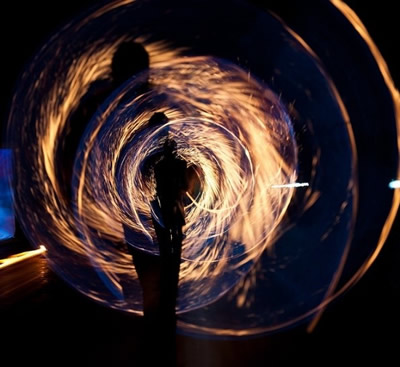No Lost Causes
Last week I was listening to a presentation on Native American Heritage Month. The speaker referenced The Seventh Generation Principle, which is “based on an ancient Haudenosaunee (Iroquois) philosophy [circa 1142 -1500 AD] that the decisions we make today should result in a sustainable world seven generations into the future.” While it is generally thought of now as a discipline on sustainability for our Earth, it also applies to interactions. “Every decision should result in sustainable relationships seven generations in the future.” From a spiritual perspective, we know that as we heal ourselves, we send healings seven generations back and seven generations forward. The actions we take today have far-reaching implications.
This concept struck me as I recently listened to two individuals from the Pierce County Community Engagement Task Force’s Speakers Bureau who were formerly homeless. (Yes, one of them was Marvin who I worked with on his story.) He said, “I was a drug addicted, gay, black man. Everyone had me pegged as a lost cause.” Hmm. If we apply the Seventh Generation Principle, then we cannot view anyone as a lost cause. Each relationship, each interaction, each connection matters, which necessitates seeing the innate value in every person. Amanda, the other speaker, said the best way to approach someone on the streets is with this thought in mind, “I wonder what they need to feel safe.” Can you feel the basic humanity in that statement? They both talked about building trust by listening and really caring, thereby giving them hope. Marvin put it eloquently, “Be the one voice we can follow out of the darkness.” (Nope, I didn’t write that, he did.)

Being a light amid the darkness. As we continue to work at the HYPE Center, we are seeing glimmers as the young people experience the power of connecting with own their inner light. On our last visit, all the participants had attended at least one other session. (The only newcomer was the Center’s director who had never meditated before but talked comfortably about his positive experience with feeling his own energy.) We’re beginning to know one another as our connections grow. We could see the flush of pride come over Andy’s* face when Nancy told him he dropped into meditation so deeply and quickly, he could have been a guru on a mountaintop. He happily agreed. And Joseph* who has severe anxiety was a little more relaxed and talkative in the second session he attended. And Bryant* — who has attended every session after bolting from the room the first time, said, “I’m beginning to enjoy this class. I even look forward to seeing the two of you.” We’ll take that as high praise! (*all names have been changed)
Let us remember this, “There is within each one of us a potential for goodness beyond our imagining; for giving which seeks no reward; for listening without judgment; for loving unconditionally,” Dr. Elisabeth Kübler-Ross
The benefits of seeing one another — connecting on a soul level and building interpersonal relationships are many. Renowned expert on equity and the American economy, Heather McGhee’s concept of the “Solidarity Dividend” states that everyone is ultimately better off if they put aside their racial differences and find common causes with one another. If we look at this idea through a wider lens, then when we set aside all differences – seeking out more of what we have in common rather than what separates us – we can build relationships that uplift not only ourselves but our communities.
As we head into Thanksgiving and Giving Tuesday (November 30), this simple quote from W. Clement Stone nicely sums up the idea of coming together. “If you are really thankful, what do you do? You share.” Give generously to causes you believe in. Share your talents, your abundance, your heart, your light, your love… think of how it will reverberate in individuals’ lives today and for generations to come.

Melanie Davis-Jones (she/her/hers)
Executive Director
In Case You Missed It:
Loving a Loved One After Loss | Blog or Video by founder Nancy Rebecca
Resources:
November is American Indian and Alaska Native Heritage Month, “a time to celebrate rich and diverse cultures, traditions, and histories and to acknowledge the important contributions of Native people.” Download this eBook, 23 Tips for working with Indigenous People.
It is also Men’s Health Month. From the nonprofit Movember, “Our fathers, partners, brothers, and friends are facing a health crisis, yet it’s rarely talked about. Men are dying too young. We can’t afford to stay silent.” Five things to know to promote men’s health.
Heart Math Institute: Solutions to Major Stressors “Whether you, a friend, or loved one is seeking help for job stress, anxiety, fatigue, sleeplessness or another stressful condition, you will find proven, easy-to-use and free solutions here.”
Leave a Reply